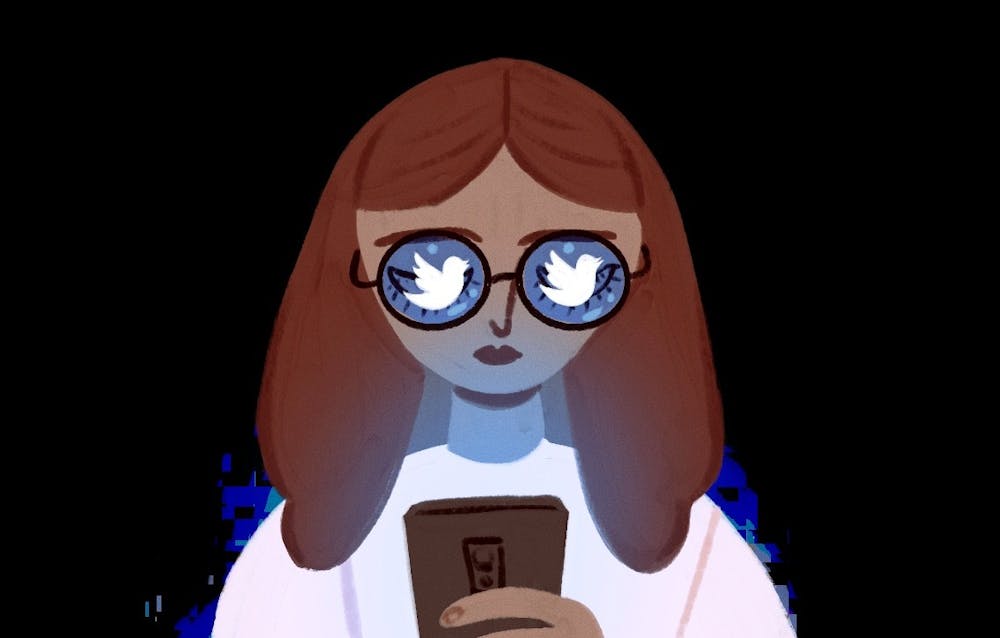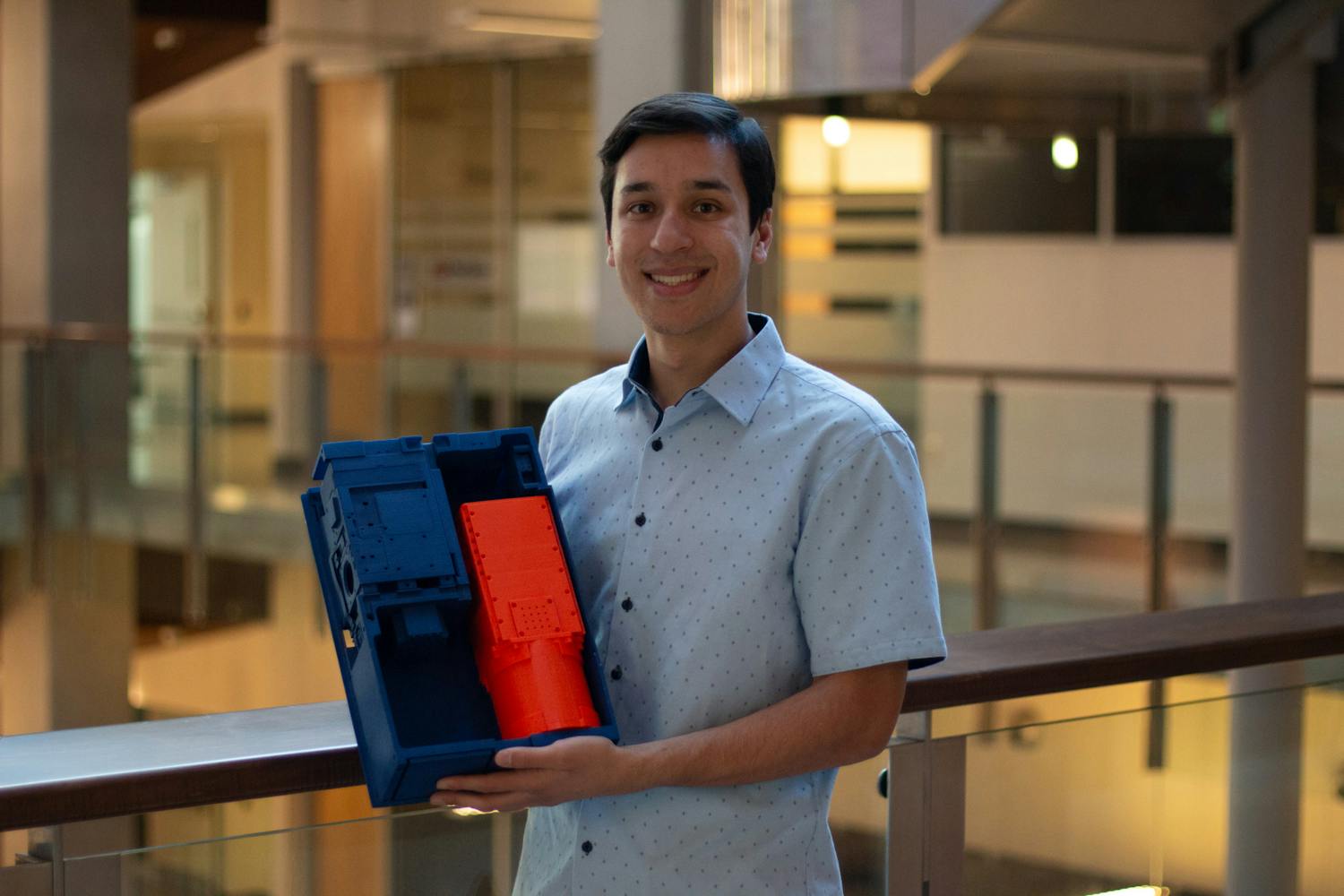Like some other members of my generation, I can be a bit more caring, sensitive and in-tune with the world than most. But the poisonous side of these qualities (this finer attention to joy and thus pain) is that we struggle more severely with mental health difficulties than almost any generation before us. As a result of these struggles, I’ve found myself relying on unhealthy coping mechanisms — oversleeping, overeating and leaving my room messier than normal.
Especially with the pandemic, with what seems like barely anything to do other than class work, I've been absolutely and dreadfully hooked to my phone. Using my smartphone twice as much, my depressive and attention-deficit hyperactivity disorder symptoms have naturally worsened. The most significant effects I’ve felt from maladaptive coping has been from a surprising but obvious source: my smartphone.
When smartphones first hit, they were illustrated in the mainstream as some sort of technological savior — a means of taking humanity out of the dark ages and bringing about a new period of vitality and innovation. For me personally, I’ve found the exact opposite has been the case.
Rather than ushering in a state of personal growth and self-betterment, my smartphone has, for the most part, brought out the worst in me. I spend my days scrolling through the searing abyss of likes and dislikes and social gatherings I wasn’t invited to. I spend birthdays and holidays indoors, away from friends and family. At this point, it might even amount to years that I’ve spent on my phone, wasting away precious moments and festering on unpleasant emotions.
One of the most salient issues I run into when using my phone is becoming continually distracted from life. I notice, for example, that when I am in the line at the checkout, I have an impulse to check my phone as I’m sliding my card in the card machine. Something feels off or incredibly awkward if I don't. It pulls me away from the possible conversation at hand, further distracting me from the present.
As someone with ADHD, this makes my symptoms even worse. I have days where I can’t even sit to watch an episode of TV for 30 minutes or gather up the required focus to read a book or meditate. It feels as though, through the conduit of incessant distraction, my phone is pulling me away from the most essential and important aspects of existence.
All of these powerful, negative feelings toward smartphones bring me a desire to change — to completely alter my relationship with my phone. The simplest of solutions would be to completely rid myself of my phone. To go smartphone-free and switch to a flip phone permanently.
Though enticing, this solution seems the least probable as smartphone technology has become so ingrained into our daily lives that living without it is a mighty task. A more plausible solution — inspired in-part from Meatless Mondays — would be phone-free Fridays. An opportunity to detox from the toxic behavioral patterns I’ve amalgamated over the years, and to take a day to myself and allow my being to recharge.
Even though many others have tried this before, I still haven’t. I realize I am so thoroughly addicted to my smartphone that the simple task of taking a break for a 24-hour period is incredibly daunting. I’ve grown not only to crave, but to need this persistent distraction from life.
The smartphone problem won’t be solved overnight, or even over the next decade, especially with new technology coming out every year and our lives becoming more and more engrossed in our devices.
But the more we take a step away from our phones to breathe, to live, to simply exist, the more we can realize that our most powerful qualities are those that exist aside from any form of technological prowess. Our greatest moments lie independent of the veil of ignorance to which technology has predisposed us. And when the veil is lifted, the view is breathtaking, magical and full of life.
Reach the reporter at cbeal4@asu.edu and follow @beal_camden on Twitter.
Like The State Press on Facebook and follow @statepress on Twitter.




